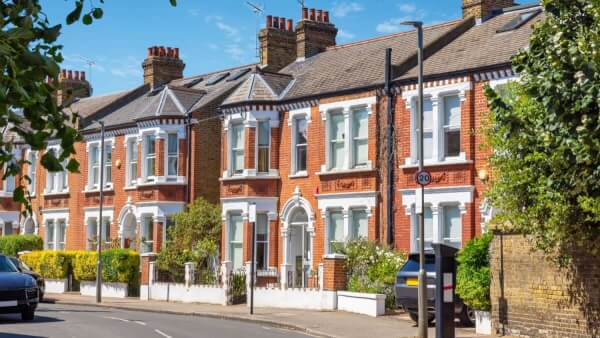Selling property in the UK as a non-resident: Complete guide
Read our comprehensive guide for non-residents selling UK property, including fees, taxes and timescales.

Buying a house can be both exciting and challenging, since there’s so much to do before you can actually enjoy it. However, buying it abroad comes with a whole new set of responsibilities. Financing everything and getting a mortgage is almost always more complicated when you’re doing it in a foreign country.
In this guide, we’ll answer the most important questions about getting a mortgage for overseas property, break down the steps and cover what documents you might need. Also, we’ll tell you what challenges you might face along the way.
We’ll also point out a cost-effective way to manage your finances across borders, including a mortgage. The Wise account from the money services provider Wise lets you manage your money in 40+ currencies in the UK and worldwide.
You can also send secure and trackable large amount transfers to 160+ countries worldwide for low fees* and mid-market exchange rates.
Learn more about the Wise account
An overseas mortgage is a loan on a property outside your country of residence, in this case, the UK.
There are different ways to get an overseas loan. You can get it from a local UK bank that has international services or from an overseas lender in the country you want to buy in. Both options come with pros and cons and they often depend on your specific circumstances.
In both cases, the application process should be similar to getting a mortgage for a property in the UK. It involves meeting certain eligibility criteria and providing the necessary documents. However, you might need to complete some extra steps, depending on the country you wish to buy in.
Before getting a mortgage for your overseas property, you should do some research first. You can do this alone or with the help of an expert.
For instance, it would be good to start with analysing the local mortgage market in the country where you’re buying. This includes researching available mortgage types and local lenders and even contacting them to ask questions directly.
This step also means looking into the local economic factors that can influence the mortgage offer. Feel free to consult a mortgage broker even for these beginning phases if you find them too overwhelming.
After doing your initial research, you might find that some banks don’t even offer loans to foreigners. Those that do might require you to have permanent residency in that country or a local credit history. This is why it’s important to see whether there are any residency or citizenship requirements you need to meet in order to get approved.
An important decision to make during this stage is whether you’ll use a UK or a foreign lender. An advantage of UK lenders is that they know what the application process looks like in both countries and can give you advice regarding things like taxes. Also, arranging a mortgage in your own language will make everything easier. However, you might find that there are many more options if you get a mortgage in the country where the property is located.¹
In some cases, banks give loans to foreigners but require them to put down a larger down payment. It’s also not uncommon for deposits to be non-refundable for non-residents, so make sure you find out whether this is the case in the country where your property is located.²
Finally, keep in mind that currency conversion can play a major role in overseas mortgages. If you choose a local lender, you’ll need to pay your mortgage in a foreign currency. This includes currency conversion and also exchange rate fluctuation, which can make payment amounts unpredictable.

The exact documents needed for a mortgage on overseas property will vary by country and also by lender. However, some are generally always required.
The first step is verifying your identity by providing your ID card or passport. You’ll need some proof of address as well, such as a recent utility bill. In case there are some residency or citizenship requirements, this is the time to show your visa, residence permit or foreign passport.
In order to prove that you’re financially stable, it’s important that you show you earn enough. You’ll likely be asked for an official proof of employment and bank statements stating your salary deposits. You can also be asked to show certain legal documents, such as a purchase contract or proof of property valuation.
The list can get quite long and you might realise you don’t have some of these documents on hand. Since it might take time to get them all in one place, make sure you ask lenders for the specific list of documents they require, so that you can prepare accordingly.
The exact cost of your international mortgage will depend on various factors, such as the location of the property and the mortgage lender. However, there are also some additional costs besides the loan amount.
If you’re hiring a financial expert or a mortgage broker, they will charge you for their services. It’s important to discuss their fees upfront, especially since you might have a chance to negotiate for a better price. You can agree on a fixed fee or a percentage of the mortgage amount.
When it comes to deposits, they can be as high as 50%. This depends on the country you’re buying in and on your financial situation.¹
Don’t forget to include tax and legal fees in the total amount, as well as translator fees in case you need them. There will likely be an arrangement fee, also known as product fee. This is a fee you pay to the lender just for setting up the deal.⁴

The application process for a regular UK mortgage and an overseas one should be roughly the same. Some differences will likely exist depending on the specific regulations and requirements in the country where you’ll be buying. Let’s cover what the mortgage application process looks like in general.
Before applying for an overseas mortgage, make a list of the banks and lenders that have them. This includes both UK based and foreign banks, since you’ll want to compare offers. If you plan on hiring a mortgage broker, you should do your research on them too.
Once you choose a lender, make a mortgage application file. It should include all the required documents, such as proof of income and proof of address. This is necessary in order to get an agreement in principle. An agreement in principle is a statement from a lender detailing how much you can borrow. After this, you can formally apply.
Some additional challenges may arise if you’re using a foreign lender. For example, you’ll need to translate all documents, which can prolong the process. You’ll also need to look into local property taxes and study them carefully.
The process of getting an overseas mortgage can be complex depending on your circumstances and the country you’re buying in. You should now have a better idea of what the process looks like and what you should look out for.
Getting a mortgage in another country requires careful planning and good money management. A Wise account can aid you in avoiding any additional hidden costs and help you send money overseas.
The Wise account is an alternative to traditional bank accounts. It will allow you to send money from the UK for low fees* and at the mid-market exchange rate. You can even rely on it for all large amount transfers and securely move bigger amounts of money, like those you might need for your mortgage payments.
Sources used:
Sources last checked on date: 27-Sep-2024
*Please see terms of use and product availability for your region or visit Wise fees and pricing for the most up to date pricing and fee information.
This publication is provided for general information purposes and does not constitute legal, tax or other professional advice from Wise Payments Limited or its subsidiaries and its affiliates, and it is not intended as a substitute for obtaining advice from a financial advisor or any other professional.
We make no representations, warranties or guarantees, whether expressed or implied, that the content in the publication is accurate, complete or up to date.

Read our comprehensive guide for non-residents selling UK property, including fees, taxes and timescales.

Read our comprehensive guide to selling property in the US, including fees, taxes, timescales and a step-by-step guide to the process.

Read our comprehensive guide to selling property in Switzerland, including fees, taxes, timescales and a step-by-step guide to the process.

Read our comprehensive guide to selling property in Portugal, including fees, taxes, timescales and a step-by-step guide to the process.

Read our comprehensive guide to selling property in Malta, including fees, taxes, timescales and a step-by-step guide to the process.

Read our comprehensive guide to selling property in Australia, including fees, taxes, timescales and a step-by-step guide to the process.